What is a sensor? A sensor is a device that generates signals and converts them into electrical energy to detect objects. A sensor can be a small module, a device, a robot, or an entire system, but whatever it is, the main function of the sensor is to manage, monitor, and detect warnings when problems occur.
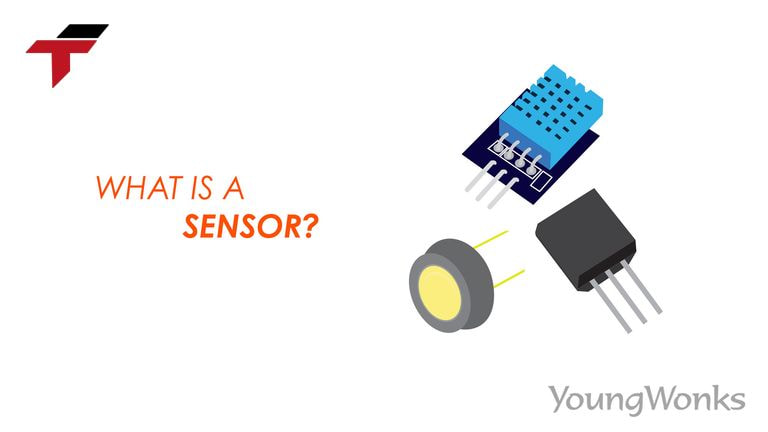
What is a sensor?
Sensor devices are often applied and classified in a variety of ways, each different type will have different characteristics and operating methods. Corresponding to each classification, the price can be high or low depending on the needs and purposes of the user.
Let’s follow Flextech to the end of the article to learn more about this sensor device.
What types of sensors are there?
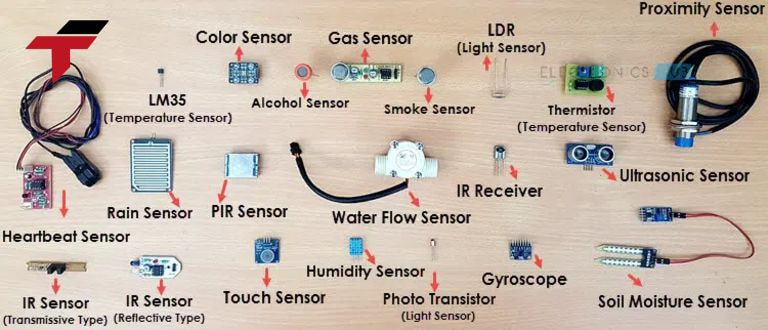
What types of sensors are there?
Sensors are classified in many different ways depending on the purpose and field of use. Below are some of the most common types of sensors today.
| Sensor type | Feature | Applications |
| Proximity Sensor | Detect the presence of an object without contact | Mobile, Automotive (parking), industrial (object alignment) |
| Accelerometer | Measures acceleration, direction, and magnitude of acceleration. | Mobile phones, tablets, cars |
| Infrared Sensor (IR) | Based on infrared light to detect objects. There are two types: transmission and reflection. | Mobile phones, robots, cars, industrial assembly. |
| Pressure Sensor | Measures the force exerted by a liquid or gas, converting it into an electrical signal | Weather forecasting, automotive systems, medical monitoring of blood pressure |
| Light Sensor | Light Dependent Resistors, Photo Diodes, and Phototransistors can be analog or digital. | Automatic lighting system, electronic devices, light detectors |
| Ultrasonic Sensor | Measures distance and velocity using high-frequency sound waves and works similarly to SONAR. | speed and distance measurement applications. |
| Sound Sensor | Converts sound waves into electrical signals, which can be analog or digital. | Smartphones, computers, audio devices, hearing aids. |
| PIR Sensor | Detects motion by capturing infrared light from objects within the viewing range. | Security systems, automatic lighting control, energy saving devices. |
What are the outstanding features of the sensor?
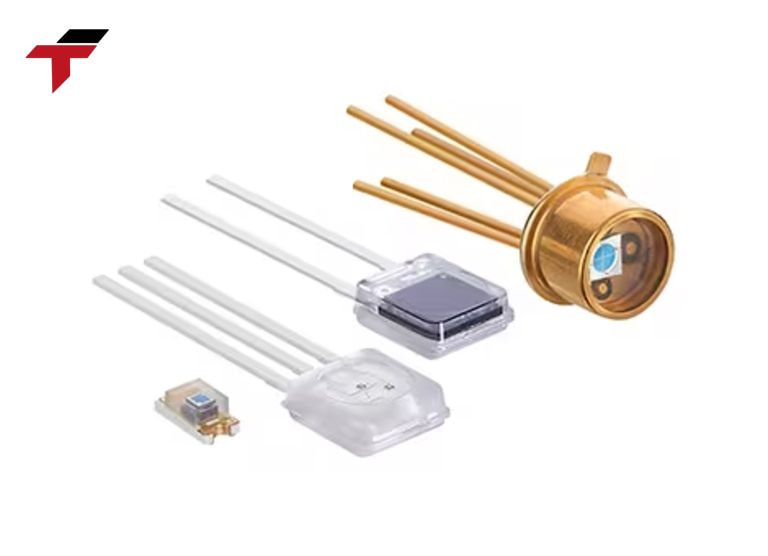
What are the outstanding features of the sensor?
Sensors are reliable devices and have many outstanding advantages in the process of monitoring and inspecting objects such as:
- High accuracy: the device can measure and determine accurately to the micron level, they can easily detect small changes on the surface of the object in a stable and highly accurate manner.
- Measurement with superior speed: displacement sensors can respond well to high-speed measurements, suitable for checking products on the production line.
- High flexibility: this is a device that can be used for many different materials such as metals, glass, and plastics, suitable for many industries such as automobiles, electronics, and machinery.
- Easy integration: a simple appearance, user-friendly interface, and sensors that are easily connected to automatic control systems such as computers and PLCs, contributing to facilitating the measurement of objects.
Where are sensors used?
Sensors are widely used in many industries to monitor, control, and optimize processes. Here are some common applications:
Automotive
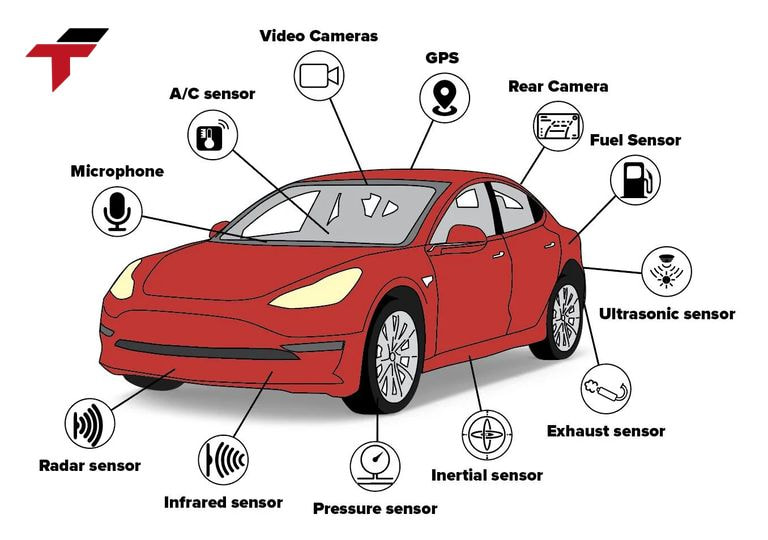
Sensors used in automotive
- ABS braking systems: Sensors measure wheel speed and brake pressure to help prevent locking during hard braking.
- Airbags: Impact sensors activate airbags in the event of an accident.
- Collision avoidance: Proximity and infrared sensors assist with parking and collision warning.
- Engine data: Sensors monitor engine performance and emissions.
Manufacturing
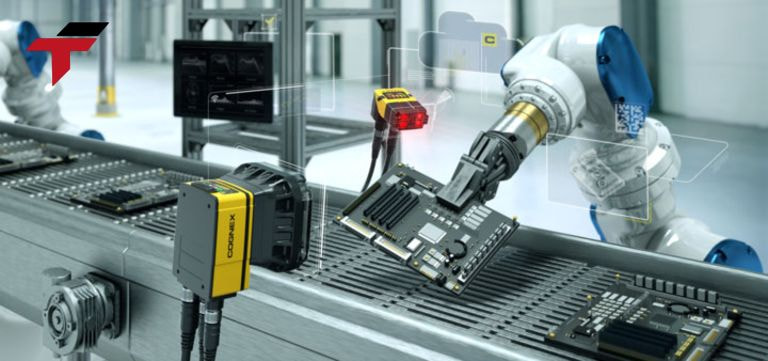
Sensor used in manufacturing
- Predictive maintenance: Sensors help monitor machinery and predict failures.
- Machine optimization: Monitor and adjust machine performance.
- Quality improvement: Monitor product quality and adjust processes.
Aerospace
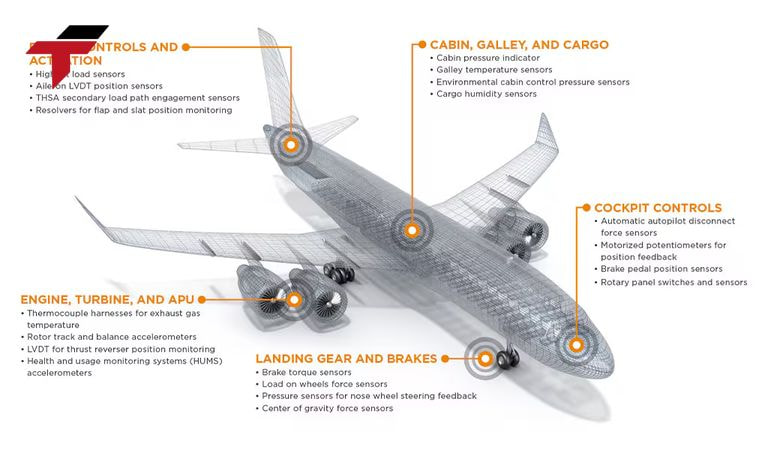
Sensor used in aerospace
- Tachometers and pressure gauges: Sensors measure critical factors such as airspeed and fuel levels.
- System monitoring: Sensors help monitor aircraft operating conditions.
Healthcare
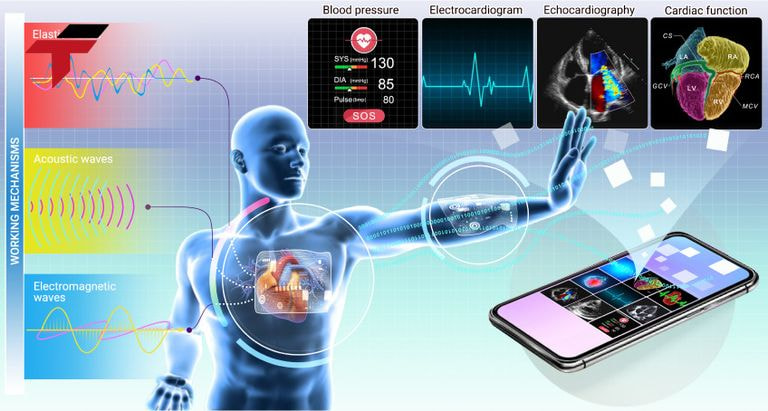
Sensor used in healthcare
- Blood pressure and glucose monitoring: Sensors help patients self-monitor their health indicators.
- Vital signs monitoring: Sensors automatically send information about the patient’s condition to the doctor.
How much does the sensor cost?
How much does it cost to install a sensor? This is a question that many users are interested in. However, the cost of a sensor device is very diverse, the price depends on many factors such as sensor classification, specific requirements, distance, and recognition level of the device. However, in general, on the market today, there are many different types of sensors at different prices, but a common price for a sensor device can range from $300 to $1,000, and high-end models that meet more stringent standards can cost over $1,000.
